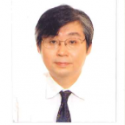Japan’s New Corporate Governance Code and Its Investment Implications
At the end of 2014, the Japanese Financial Services Agency (FSA) announced a new code of corporate governance, to be adopted in June this year, to advance the “third arrow” (structural reform) of “Abenomics,” Japanese Prime Minister Abe Shinzo’s multi-pronged program for reinvigorating Japanese economic growth.
A key component of this code is its requirement for Japanese companies to have multiple independent directors and to justify any failure to do so (this is termed the “comply or explain” principle). Moreover, the new code requires independent directors to evaluate the managerial accomplishments of other board members objectively. This and the transparency necessitated by an objective Board evaluation will, in turn, create powerful incentives for Japanese corporate managers to boost return on equity (ROE), the most objective criterion for judging business performance. If Board members in Japan have to pay more attention to ROE, then logically we can anticipate productivity improvements at many Japanese firms. Enhanced transparency of Japanese corporate governance will help to realize one of the key objectives of Abenomics—i.e., “diversity of economy and business”—because it will increase the pool of global investors willing to take stakes in Japanese firms through M&A and other investment vehicles. What was once an impediment to investing in Japan (the lack of corporate governance transparency) will finally be fixed by this code. As of now, Abenomics seems to be losing some attractiveness because of global investors’ concerns relating to the postponement of the consumption tax increase which could possibly slowdown the fiscal consolidation process. However, the full launching of the third arrow could significantly improve the performance of the Japanese economy. A historical turning point has finally come. In a new age ruled by a new code of corporate governance, Japan’s economic growth may come from diverse investors coming from outside Japan.





